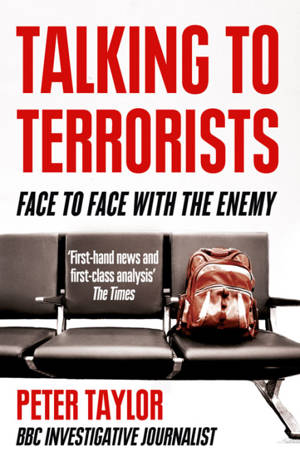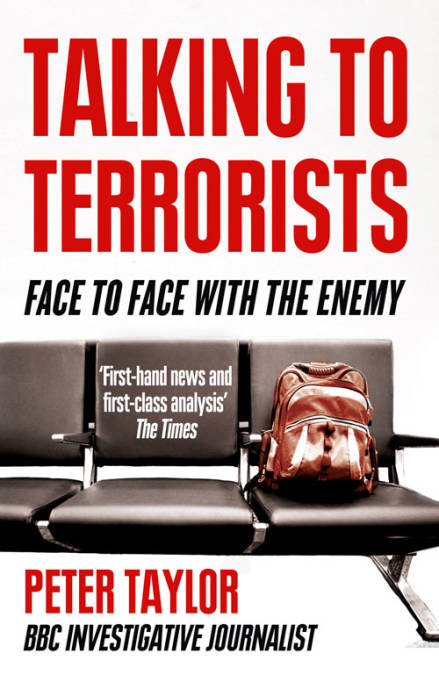
- Afhalen na 1 uur in een winkel met voorraad
- Gratis thuislevering in België vanaf € 30
- Ruim aanbod met 7 miljoen producten
- Afhalen na 1 uur in een winkel met voorraad
- Gratis thuislevering in België vanaf € 30
- Ruim aanbod met 7 miljoen producten
Zoeken
Talking to Terrorists E-BOOK
A Personal Journey from the IRA to Al Qaeda
Peter Taylor
E-book | Engels
€ 8,99
+ 8 punten
Uitvoering
Omschrijving
A controversial and timely book by BBC reporter and terrorism expert Peter Taylor
In ‘Talking to Terrorists’ Peter Taylor takes us on a personal journey, quoting from diaries written at the time, as he reveals what it was like to come face-to-face with IRA terrorists and Islamic jihadis.
What are terrorists really like? How do states counter them? And should governments talk to them? Drawing on more than 35 years of reporting terrorism, Taylor asks these difficult questions as he tries to understand the motives of the men and women behind some of the world’s most notorious terror attacks.
The reality behind terrorism is complex. As the saying goes, ‘one man’s terrorist is another man's freedom fighter’. Many former ‘terrorists’ have gone on to become statesmen: Menachem Begin of Israel’s Irgun, Yasser Arafat of Palestine’s Fatah, Nelson Mandela of South Africa’s ANC, and Gerry Adams and Martin McGuinness of Ireland’s Irish Republican Army. Stripped of their masks, bombs and guns, terrorists are normal people – but they are prepared to kill in the name of a cause in which they believe.
Taylor asks what lessons can be learned from the resolution of conflict in Northern Ireland in confronting the threat of Islamic extremism, and tackles head-on the highly topical issue of extracting actionable intelligence that could save lives. When does interrogation become torture? Often, he argues, there is little choice but to talk to the enemy.
In ‘Talking to Terrorists’ Peter Taylor takes us on a personal journey, quoting from diaries written at the time, as he reveals what it was like to come face-to-face with IRA terrorists and Islamic jihadis.
What are terrorists really like? How do states counter them? And should governments talk to them? Drawing on more than 35 years of reporting terrorism, Taylor asks these difficult questions as he tries to understand the motives of the men and women behind some of the world’s most notorious terror attacks.
The reality behind terrorism is complex. As the saying goes, ‘one man’s terrorist is another man's freedom fighter’. Many former ‘terrorists’ have gone on to become statesmen: Menachem Begin of Israel’s Irgun, Yasser Arafat of Palestine’s Fatah, Nelson Mandela of South Africa’s ANC, and Gerry Adams and Martin McGuinness of Ireland’s Irish Republican Army. Stripped of their masks, bombs and guns, terrorists are normal people – but they are prepared to kill in the name of a cause in which they believe.
Taylor asks what lessons can be learned from the resolution of conflict in Northern Ireland in confronting the threat of Islamic extremism, and tackles head-on the highly topical issue of extracting actionable intelligence that could save lives. When does interrogation become torture? Often, he argues, there is little choice but to talk to the enemy.
Specificaties
Betrokkenen
- Auteur(s):
- Uitgeverij:
Inhoud
- Aantal bladzijden:
- 304
- Taal:
- Engels
Eigenschappen
- Productcode (EAN):
- 9780007433629
- Verschijningsdatum:
- 2/03/2011
- Uitvoering:
- E-book
- Beveiligd met:
- Adobe DRM
- Formaat:
- ePub

Alleen bij Standaard Boekhandel
+ 8 punten op je klantenkaart van Standaard Boekhandel
Beoordelingen
We publiceren alleen reviews die voldoen aan de voorwaarden voor reviews. Bekijk onze voorwaarden voor reviews.











